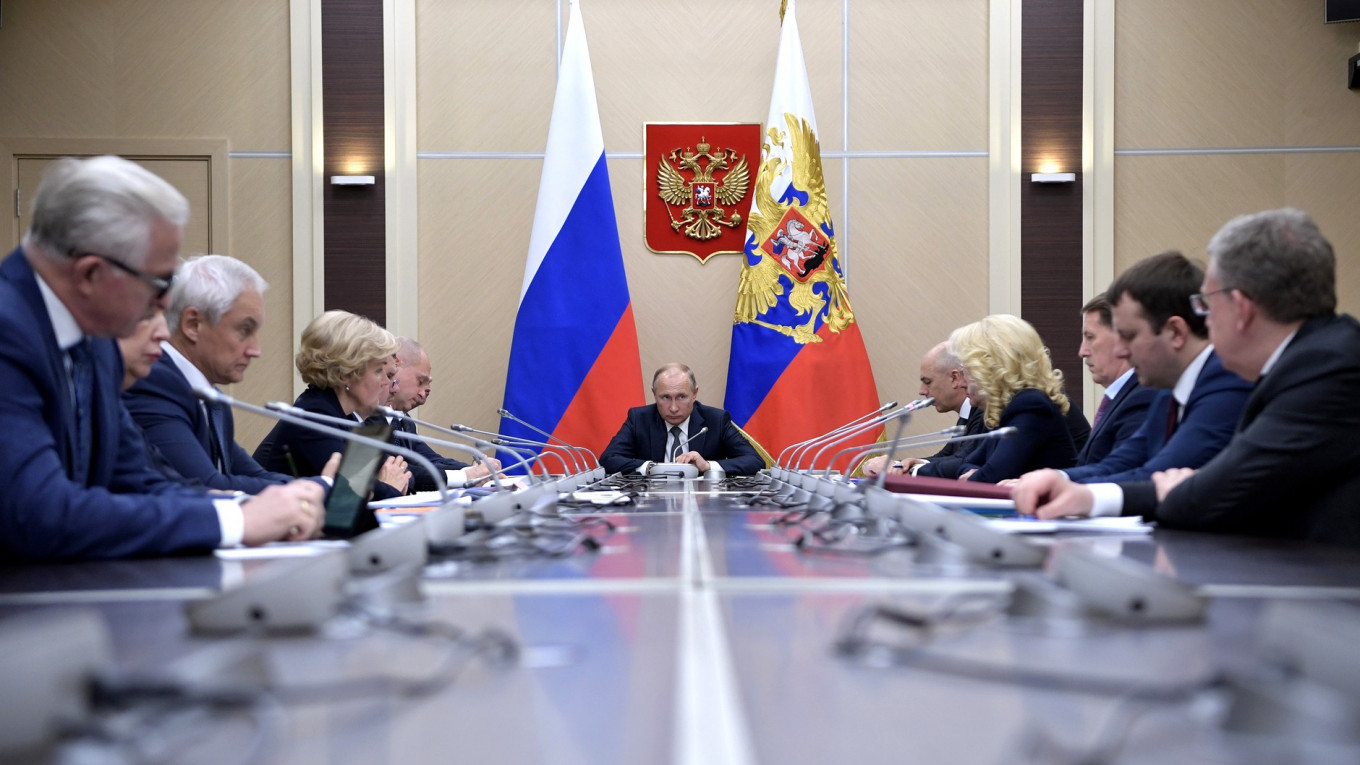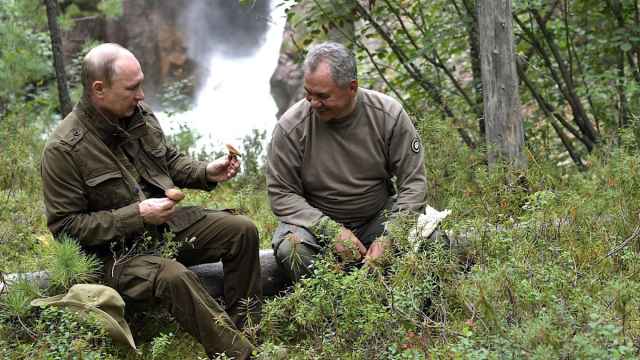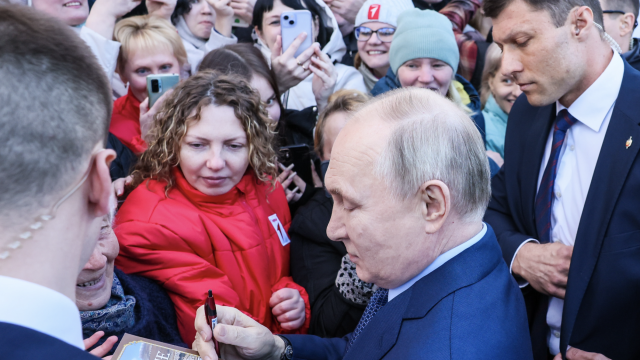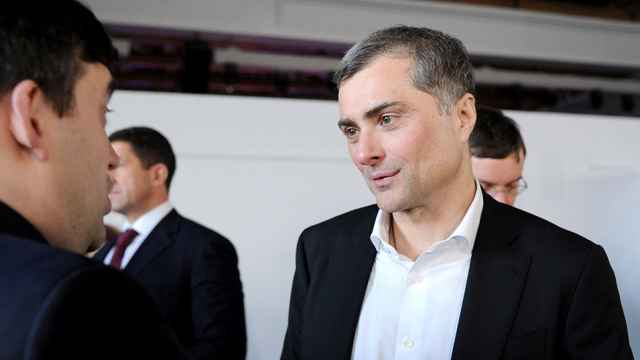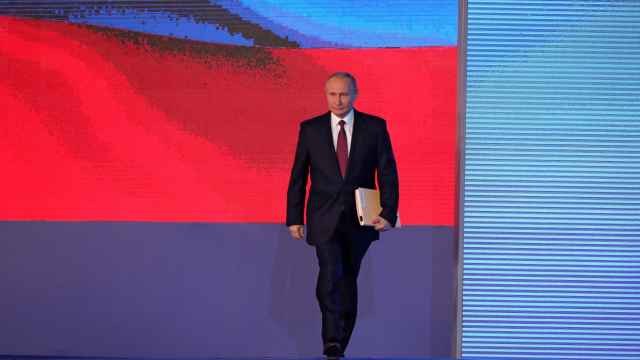Anonymous Russian Telegram channels, which over the past year have begun to position themselves as an alternative media source, suddenly last week launched a campaign against Dmitry Peskov, President Vladimir Putin’s press secretary.
Normally, this news wouldn’t be a very big deal. But as several credible investigations revealed, a large number of these channels are actually directly connected to the Russian government. This points to the attack against Peskov coming from within.
This isn’t the first time we’ve seen such a conflict occur within the power “hierarchy.” Parliamentary Speaker Vyacheslav Volodin, the only speaker in Putin’s regime who has managed to remain a prominent public political figure, has seen his place threatened recently as he does not fit into the new model of thinking presented by Kremlin’s domestic policy curators, notably Sergey Kiriyenko and Andrei Tarchuk.
These conflicts illustrate a new reality: an increasing sense of competition within the regime, rather than a carefully designed power vertical. This political scramble will define Putin’s final term.
In Peskov’s case, it seems that Putin’s spokesperson is being attacked for vague comments he made regarding the scandal surrounding Russian senator Rauf Arashukov. Arashukov, 32, was detained in late January during a live parliamentary session and has been charged with several crimes, including two murders.
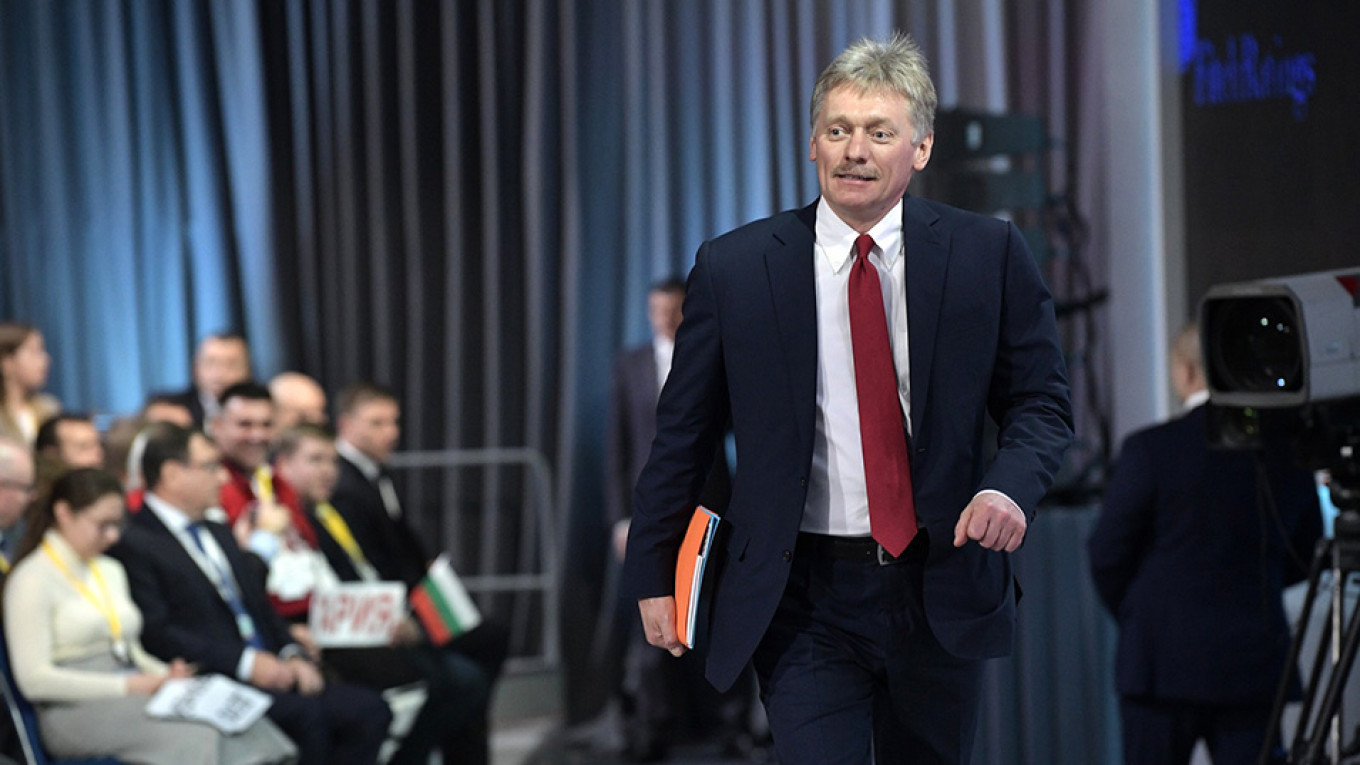
When asked if Arashukov detention indicates a failure by Gazprom management (Arashukov’s father was an advisor to the head of Mezhregiongaz, a subsidiary of Gazprom), Peskov responded that so far Arushkov has only been accused and “his guilt will have to be proven during the trial.”
In the eyes of the investigation’s organizers — who managed to enlist Putin’s direct support and mobilize the entire vertical power structure to arrest Arashukov during a session of the federation council — Peskov’s cautious answer could have indicated his doubt in their actions, which led to a heated reaction.
This would be like Foreign Minister Sergei Lavrov claiming that we need to prove in court that Ukrainian sailors violated the Russian border, despite the fact that the violation was unanimously recognized and strongly condemned by all branches of the Russian government.
What Putin so carefully built during his first two terms as president — the notorious power vertical — is gradually beginning to splinter from the inside.
The significance here is not that Peskov was trying to stand up for the Arashukovs (he did not), but that the prosecution’s initiators had dared to strike one of the figures closest to Putin over a carefully made statement.
And this is not an isolated incident — such practices are becoming increasingly widespread.
In St. Petersburg, political operators connected with Yevgeny Prigozhin, Putin’s ‘Chef,’ constantly compete with political consultants selected by the presidential administration. In the recent scandalous regional elections in Primorsky Krai, Deputy Prime Minister Yuri Trutnev’s political consultants stole the thunder from the political technologists sent by Moscow.
All of these mini-conflicts tell a very important story. First, they demonstrate that high-ranking officials feel uncertain of the future. With the possible exception of a very limited group of people, nobody knows how the country will develop after Putin leaves the presidency. This forces politicians to fight for their current prerogatives so they’ll have more bargaining power when the time comes to divide up spheres of influence.
Security officials and Volodin alike defend the broader powers of the State Duma alongside longtime Putin advisor Vladislav Surkov, who recently published an open letter highlighting the importance of preserving the existing model (and his own role in creating it).
Second, this uncertainty makes it impossible to make mid-term plans, not to mention long-term plans.
“Better an egg today than a hen tomorrow” is the motto by which the Russian bureaucracy and elite have begun to live by.
As the Kremlin’s horizontal overview shrinks, the situation allows for more brash and decisive moves from within the power vertical. This is enhanced by the weakening of arbitration control coming from Putin himself, as he’s grown tired of getting into these minor (by his standards) internal squabbles.
Third, and most importantly, the boundaries of what’s permissible are expanding. You can now arrest a senator during a federation council session even though this simultaneously destroys the reputation of one of the key institutions of any government — including Putin’s — the upper chamber of Parliament.
You can bluntly orchestrate and arrest the foreign head of the investment firm Baring Vostok, one of the oldest private equity firms in Russia, even if it further damages the investment climate of the country.
You can jail a minister if you don’t think he’s prepared to bend to the will of a powerful oil company and the almighty Igor Sechin.
In this new reality, Putin doesn’t have the time to deal with such disputes. He won’t stand up for the accused.
All of this has led to a completely new political climate that marks a return to the atmosphere of the ‘90s. Albeit without the acute criminalization and with a more healthy economic situation — though this too is headed towards demise.
What Putin so carefully built during his first two terms as president — the notorious power vertical — is gradually beginning to splinter from the inside, reducing the barriers to entry for a war of everyone against everyone which will ultimately make the regime less uniform and manageable.
A Message from The Moscow Times:
Dear readers,
We are facing unprecedented challenges. Russia's Prosecutor General's Office has designated The Moscow Times as an "undesirable" organization, criminalizing our work and putting our staff at risk of prosecution. This follows our earlier unjust labeling as a "foreign agent."
These actions are direct attempts to silence independent journalism in Russia. The authorities claim our work "discredits the decisions of the Russian leadership." We see things differently: we strive to provide accurate, unbiased reporting on Russia.
We, the journalists of The Moscow Times, refuse to be silenced. But to continue our work, we need your help.
Your support, no matter how small, makes a world of difference. If you can, please support us monthly starting from just $2. It's quick to set up, and every contribution makes a significant impact.
By supporting The Moscow Times, you're defending open, independent journalism in the face of repression. Thank you for standing with us.
Remind me later.



